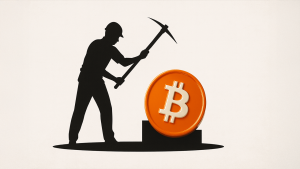Bank of Israel, Hong Kong Monetary Authority to Test CBDC

The Bank of Israel is collaborating with the Hong Kong Monetary Authority in a trial for a new central bank digital currency.
The joint CBDC project will utilize a two-tiered system, once it begins in the third quarter. This means that after being issued by the central bank, the digital currency would be distributed to consumers through financial intermediaries.
The retail CBDC is being designed so that intermediaries can handle it without financial exposure to their customers. Part of the testing by Israel and Hong Kong will determine whether this makes it less vulnerable to cyber attacks.
According to the Bank of Israel, the “exposure-free” CBDC enables “less financial risk for the customer, more liquidity, lower costs, increased competition, and wider access.” The Bank for International Settlements’ Innovation Unit will also be taking part in the collaboration.
Global CBDC demand
This marks the closest Israel has come to exploring the idea of a CBDC. An initial effort in 2018 was shelved when a central bank team argued against issuing a digital version of the shekel. Israel is one of 100 countries around the world who have been considering issuing a CBDC, according to the International Monetary Fund (IMF).
China’s digital yuan has been tested by around 140 million people, including during the recent Winter Olympics in Beijing. A Bank of England official recently said a digital version of the currency would be in line the mission of the central bank. The Bank of Jamaica recently recognized its CBDC as legal tender, becoming the first country in the world to do so.
Central banks will inevitably launch their own digital currencies, according to analysts at Bank of America Corp. On the one hand is the risk of losing monetary sovereignty to private issuers, such as a social network, or decentralized finance. However, there is also the risk of losing relevance to a larger, prospectively wider digital coin such as a digital dollar or a digital euro.
What do you think about this subject? Write to us and tell us!
Disclaimer
All the information contained on our website is published in good faith and for general information purposes only. Any action the reader takes upon the information found on our website is strictly at their own risk.













